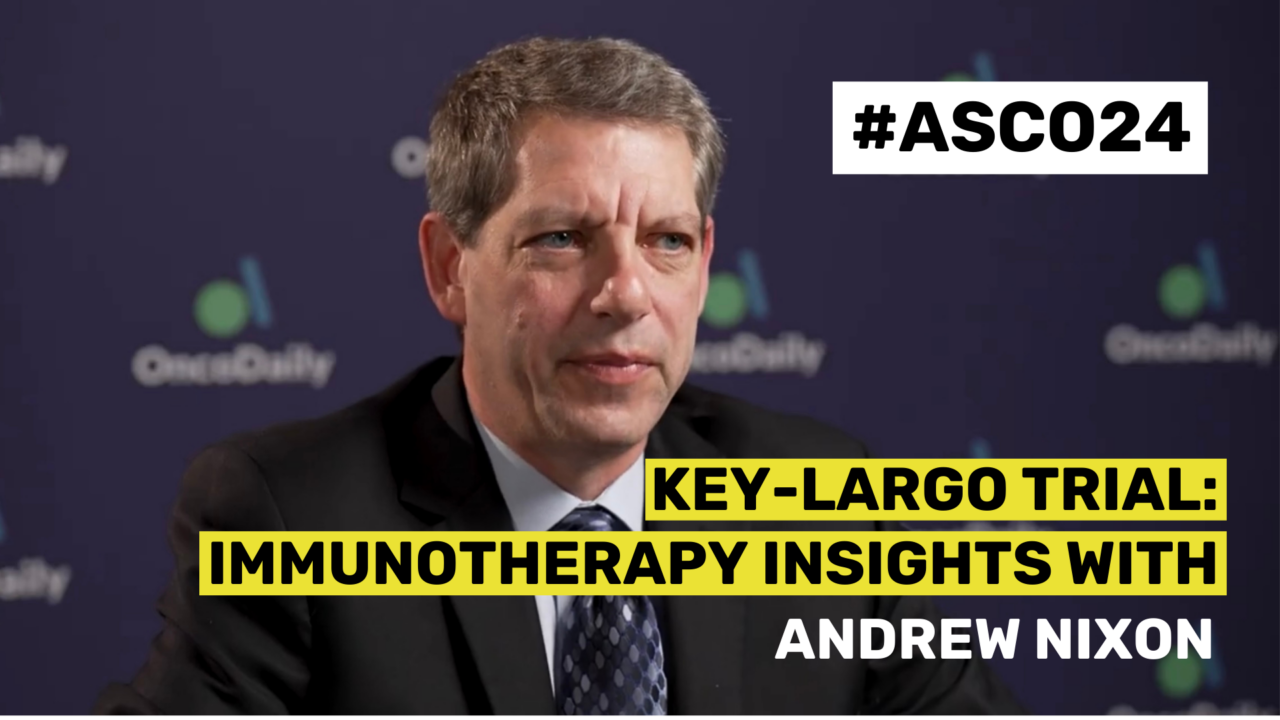The American Society of Clinical Oncology (ASCO) Annual Meeting is one of the largest and most prestigious conferences in the field of oncology. This year, the meeting took place from May 31 to June 4 in Chicago, Illinois. The event gathers oncologists, researchers, and healthcare professionals from around the world to discuss the latest advancements in cancer research, treatment, and patient care. Keynote sessions, research presentations, and panel discussions are typically part of the agenda, providing attendees with valuable insights into emerging trends and innovations in oncology.
This year, OncoDaily was at ASCO 2024 for the first time covering the meeting on-site. We had the pleasure of interviewing researchers who summarized the highlights of their work.
In this video, Dr. Andrew Nixon from Duke University, shared insights on ‘Ultra-sensitive ctDNA dynamics to capture therapy response in pembrolizumab-treated gastroesophageal cancer.‘
Hello, my name is Andrew Nixon. I’m professor of medicine at Duke University, and today I’d like to talk about two abstracts we have at ASCO today, looking at a phase two study of immunotherapy in gastroesophageal cancer. The name of the study was Key- Largo, about 36 patients, and our approach was looking at biomarkers from two different modalities.
Our first biomarker abstract was looking at cell-free DNA using a tumor-informed technology, and looking at the clearance of cell-free DNA during treatment. In this population, we had a variety of responses from complete responders to progressive disease, and looking at the clearance and abundance of cell-free DNA was able to inform us more with respect to the progression of these patients, and in fact, on average, we identified a progressive patient 60 days prior to what we would have seen normally with a rhesus measurement.
The goal here is to identify a potential biomarker for molecular progression that could work with or possibly enhance normal radiographic rhesus measurement.
In addition to this work, we also looked at a large-scale proteomic analysis to integrate with the cell-free DNA. We looked at over 1,000 proteins at baseline and on treatment to understand the changes of these proteins in respect to immunotherapy and how they associate with outcome. Impressively, we saw certain proteins associate strongly with outcome, and interestingly, after a monotherapy leading, after Pembrolizumab only, what we noticed was a very focused change in a limited population of protein biomarkers related to the immune system.
After the addition of chemotherapy, a variety of protein modulation occurred that was much more complex and really brings together the complex biology of both immuno-oncology and the response to chemotherapy. In all, we hope to bring these two abstracts together in identifying a multimodality multi-omic biomarker that can better predict patients’ response to immunotherapy. Thank you.
More videos and content from ASCO 2024 on OncoDaily.


